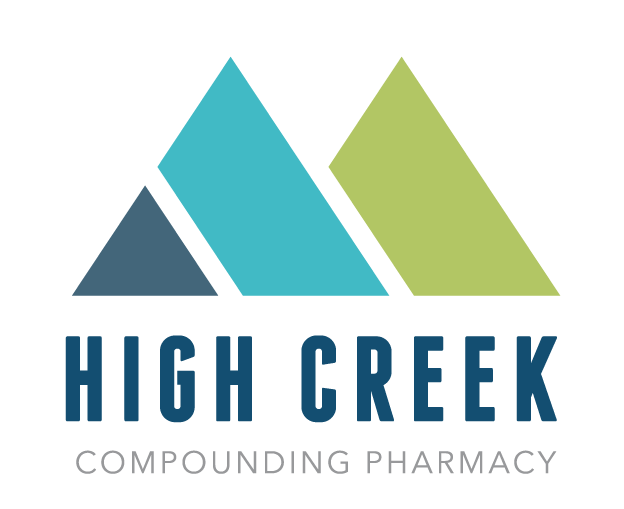
04 Jul Dermatological Compounds: Tailored Solutions for Skin Conditions from a Compounding Pharmacy
Skin conditions can be a source of discomfort and frustration for many individuals. While numerous over-the-counter and prescription medications are available, they may only sometimes provide the desired results. This is where dermatological compounds from a compounding pharmacy come into play. Compounding pharmacies offer customized solutions that can be tailored to meet the specific needs of each patient. In this blog post, we will explore the world of dermatological compounds and how they can offer personalized treatments for various skin conditions.
Understanding Dermatological Compounds
Dermatological compounds are specialized medications formulated by compounding pharmacists to address specific skin conditions. In Richmond, UT, individuals seeking tailored solutions for their skin concerns can benefit from the expertise of compounding pharmacies. These pharmacies can create personalized formulations that cater to each patient’s unique needs, offering a more effective and customized approach to treating skin conditions.
One of the key advantages of dermatological compounds is their ability to provide personalized formulations. Compounding pharmacists in Richmond, UT, can create medications that target specific skin concerns, such as acne, eczema, psoriasis, or rosacea. They can optimize treatment outcomes and increase patient satisfaction by tailoring the formulation. These customized compounds consider factors like the severity of the condition, the patient’s skin type, and any allergies or sensitivities they may have.
Another benefit of dermatological compounds is the avoidance of allergens and irritants. Many commercially available skin medications contain ingredients that can exacerbate certain conditions or cause adverse reactions. Compounding pharmacists in Richmond, UT, can create compounds that exclude these substances, making them suitable for individuals with sensitive skin or allergies. By removing potential irritants, these compounds offer a gentler and safer solution for managing skin conditions.

Benefits of Dermatological Compounds
Dermatological compounds offer several benefits, making them a preferred choice for treating various skin conditions. These benefits include:
- Personalized Formulations: One of the primary advantages of dermatological compounds is their ability to provide customized formulations. Every patient’s skin condition is unique, and their needs may vary in severity, sensitivity, and location. Compounding pharmacists have the expertise to create medications specifically tailored to address individual concerns. By customizing the formulation, they can optimize treatment outcomes and increase patient satisfaction.
- Allergen and Irritant Avoidance: Many commercially available skin medications contain allergens or irritants that can exacerbate certain skin conditions or cause adverse reactions. Dermatological compounds from compounding pharmacies can be customized to exclude these substances, making them suitable for individuals with sensitive skin or allergies. Compounding pharmacists can carefully select ingredients and remove potential irritants, ensuring that the compounds are safe and well-tolerated by patients.
- Access to Discontinued Medications: Occasionally, pharmaceutical companies discontinue certain medications due to low demand or manufacturing issues. However, some patients may still benefit from these finished treatments. Compounding pharmacies can recreate these medications by sourcing ingredients and compounding them in the required dosage forms. This allows patients to continue their treatment regimen without disruption, providing consistent and effective solutions for their skin conditions.
- Combination of Active Ingredients: Dermatological compounds also offer the advantage of combining multiple active ingredients into a single preparation. This can be particularly beneficial for individuals with complex skin conditions that require a multifaceted approach. Compounding pharmacists can create customized compounds that incorporate various active ingredients, reducing the need for patients to apply multiple products to their skin. This simplifies the treatment regimen and improves patient convenience.
- Unique Dosage Forms: Another benefit of dermatological compounds is the ability to create unique dosage forms most suitable for individual patients. Some individuals prefer creams, while others prefer gels, lotions, ointments, or sprays. Compounding pharmacies can accommodate these preferences and create medications in the desired texture or format, enhancing patient compliance and satisfaction.
Common Skin Conditions and Tailored Compounds
Acne
Acne is a common skin condition that affects individuals of all ages. Dermatological compounds can provide customized formulations to address various factors contributing to acne, including excess sebum production, bacterial overgrowth, and inflammation. Compounding pharmacists can create topical creams, gels, or lotions with active ingredients, such as retinoids, antibiotics, or salicylic acid, tailored to suit each patient’s skin type and severity of acne.
Eczema
Eczema is a persistent skin condition that causes dry, itchy, and inflamed skin patches. Compounding pharmacies offer customized solutions to manage eczema symptoms by formulating moisturizers, creams, or ointments with ingredients like corticosteroids, ceramides, or anti-inflammatory agents. These compounds provide relief and help restore the skin’s natural barrier function. Compounding pharmacies are able to tailor these formulations to individual preferences, offering fragrance-free or dye-free options for those with sensitivities. This personalized approach ensures that patients with eczema can find practical and comfortable treatment options.
Psoriasis
Psoriasis is a chronic autoimmune disease characterized by the rapid overproduction of skin cells, resulting in thick, scaly patches on the skin. While there is no cure for psoriasis, compounded medications can be tailored to meet each patient’s specific needs. These medications may contain corticosteroids, coal tar, vitamin D analogs, or immunosuppressive agents. Compounding pharmacists have the expertise to create formulations that target specific affected areas of the body, such as the scalp, nails, or body. This personalized approach ensures optimal efficacy and patient comfort, addressing individuals’ unique challenges with psoriasis.
Rosacea
Rosacea is a persistent skin condition that results in redness, noticeable blood vessels, and occasionally acne-like breakouts on the face. Custom-made rosacea medications can consist of metronidazole, azelaic acid, or brimonidine. These compounds are typically compounded into creams or gels with various potencies to address the distinct symptoms and intensity of rosacea experienced by each person. It is essential to consult a healthcare professional to determine the most suitable compounded medication based on individual needs and preferences.
The Process of Compounding Dermatological Medications
Compounding dermatological medications involves the customized preparation of medications to meet the specific needs of individual patients. Here’s an overview of the process:
- Prescription and Assessment: The process begins with a prescription from a healthcare provider, typically a dermatologist. The healthcare provider assesses the patient’s condition, considering factors such as the type and severity of the skin condition, any allergies or sensitivities, and the patient’s medical history.
- Formulation Development: Based on the assessment, the compounding pharmacist determines the appropriate active ingredients, dosage strength, and delivery form (e.g., cream, ointment, gel, lotion) for the compounded medication. The pharmacist considers the ingredients’ compatibility, formulation stability, and the patient’s preferences or restrictions.
- Ingredient Selection and Compounding: The compounding pharmacist sources high-quality pharmaceutical-grade ingredients. Depending on the formulation, they may combine active pharmaceutical ingredients (APIs) with various excipients, such as emulsifiers, penetration enhancers, or preservatives. Compounding may involve mixing, grinding, melting, or dissolving techniques to create a homogeneous product.
- Quality Assurance: The pharmacist adheres to strict quality control standards throughout the compounding process. They may conduct potency testing, microbial testing, and other quality checks to ensure the final product meets the required specifications. Compounding pharmacies often work in compliance with regulatory guidelines and may have additional quality assurance protocols in place.
- Patient Counseling: Once the compounded medication is prepared, the pharmacist provides appropriate labeling and instructions for use. They may also offer counseling to the patient, explaining the purpose of the medication, the recommended application technique, and any potential side effects or precautions to be aware of.
Working with a Compounding Pharmacy
When utilizing dermatological compounds from a compounding pharmacy, engaging in close cooperation with a healthcare provider who can prescribe and oversee the treatment is crucial. The healthcare provider will work alongside the compounding pharmacist to ascertain the appropriate active ingredients, dosage strengths, and application methods based on the patient’s specific skin condition, medical history, and desired treatment outcomes. This collaborative approach ensures that the compounded medication is tailored to meet each patient’s individual needs, taking into account any allergies or sensitivities they may have. By customizing the formulation, compounding pharmacies can provide personalized solutions unavailable through commercially manufactured products.
Tips for Finding a Reputable Compounding Pharmacy for Dermatological Need
When searching for a reputable compounding pharmacy for dermatological needs, consider the following tips:

- Consult with Healthcare Providers: Seek recommendations from dermatologists, physicians, or other healthcare professionals with compounding pharmacy experience. They can provide insights into reliable and trusted compounding pharmacies in your area.
- Verify Expertise and Experience: Inquire about the compounding pharmacy’s experience and expertise in dermatological compounding. Find out if they have specialized knowledge, trained pharmacists, or partnerships with dermatologists. A pharmacy with a strong track record in dermatological compounding is more likely to provide quality formulations.
- Quality Control Measures: Ask about the pharmacy’s quality control protocols. Reputable compounding pharmacies should have strict quality assurance processes, including testing for potency, sterility, and end-product verification. Inquire about their sourcing of ingredients and ensure they use high-quality pharmaceutical-grade substances.
- Customization Options: Confirm that the compounding pharmacy offers a range of customizable options for dermatological medications, such as different dosage forms, strengths, or combinations of active ingredients. A pharmacy that can tailor formulations to your specific needs is advantageous.
- Communication and Support: Evaluate the level of communication and support the compounding pharmacy provides. They should be accessible for any questions or concerns regarding your compounded medication. A reliable pharmacy will be responsive, offer clear instructions, and provide appropriate counseling.
Conclusion
In conclusion, finding tailored solutions is key to achieving optimal results when treating skin conditions. Compounding pharmacies like High Creek Pharmacy in Richmond, UT offers specialized services that can address individual needs. Their expert pharmacists can customize dermatological compounds, providing personalized formulations and delivery methods for conditions such as acne, eczema, psoriasis, etc. With a focus on quality control, expertise, and patient support, High Creek Pharmacy is a trusted resource for those seeking practical and personalized dermatological treatments. If you’re in Richmond, UT, contact High Creek Pharmacy today to explore the benefits of dermatological compounds explicitly tailored to your skin condition.

No Comments